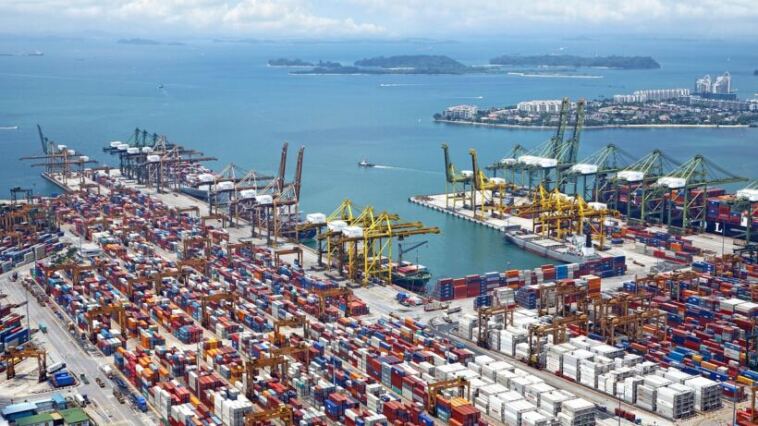- Like
- SHARE
- Digg
- Del
- Tumblr
- VKontakte
- Flattr
- Buffer
- Love This
- Save
- Odnoklassniki
- Meneame
- Blogger
- Amazon
- Yahoo Mail
- Gmail
- AOL
- Newsvine
- HackerNews
- Evernote
- MySpace
- Mail.ru
- Viadeo
- Line
- Comments
- Yummly
- SMS
- Viber
- Telegram
- JOIN
- Skype
- Facebook Messenger
- Kakao
- LiveJournal
- Yammer
- Edgar
- Fintel
- Mix
- Instapaper
- Copy Link
Introduction
The internet has completely revolutionized the way in which we all live, work, and communicate with each other. One of the industries that has been significantly impacted by the internet is the shipping industry.
Shipping is now well and truly an essential part of global trade and commerce, and the internet has transformed the way goods are shipped from one place to another, significantly changing the game in terms of efficiency, speed, and cost.
This article’s going to take a deeper look at four ways the internet has changed the shipping culture.
1. E-commerce and Online Marketplaces
The rise of e-commerce and online marketplaces has been among the largest game-changers for the shipping industry. In the past, consumers had to visit physical stores to purchase goods, and retailers had to rely on traditional shipping methods to deliver products to customers. However, the internet has enabled consumers to shop online from anywhere in the world, and retailers can use e-commerce platforms to sell their products globally. These marketplaces have also changed the way professionals in the industry operate. Looking for shipping work? As a truck driver, for instance- these online shipping work marketplaces will allow independent drivers to pick up freelance jobs.
As a result, the shipping industry has seen an apparent and very significant growth in recent years, as retailers and consumers rely on shipping companies to deliver products efficiently.
2. Tracking and Transparency
The internet has also improved tracking and transparency in the shipping industry. Before the internet, tracking packages was a tedious and time-consuming process. However, today, shipping companies provide customers with tracking information through their websites and mobile applications. This has improved customer satisfaction and reduced the number of lost packages. Moreover, shipping companies can now provide real-time updates on the status of packages, including delivery times and locations.
3. Automation and Robotics
The internet has also led to the automation of shipping processes, reducing the need for human intervention. Automation and robotics have improved the speed and efficiency of shipping processes, reducing the time it takes for packages to reach their destination. For instance, shipping companies now use automated sorting systems, robotic arms, and autonomous vehicles to sort and transport packages. This has reduced the risk of human error and increased the speed of shipping processes.
4. Globalization
The internet has also contributed to the globalization of the shipping industry. Shipping companies can now easily connect with customers and partners in different parts of the world, making it easier to expand their businesses globally. What’s more, the internet has made it possible for shipping companies to operate in different time zones, reducing the time it takes to deliver packages to customers. This has improved the efficiency of the shipping industry, making it easier for businesses to operate on a global scale.
The Bottom Line
The internet has had a significant impact on the shipping industry, transforming the way goods are shipped from one place to another. The rise of e-commerce and online marketplaces, improved tracking and transparency, automation and robotics, and globalization are just a few examples of how the internet has changed the shipping culture. These changes have improved the speed, efficiency, and cost of shipping processes, making it easier for businesses to operate globally. As technology continues to evolve, it is likely that the shipping industry will continue to experience significant changes and improvements in the years to come.


